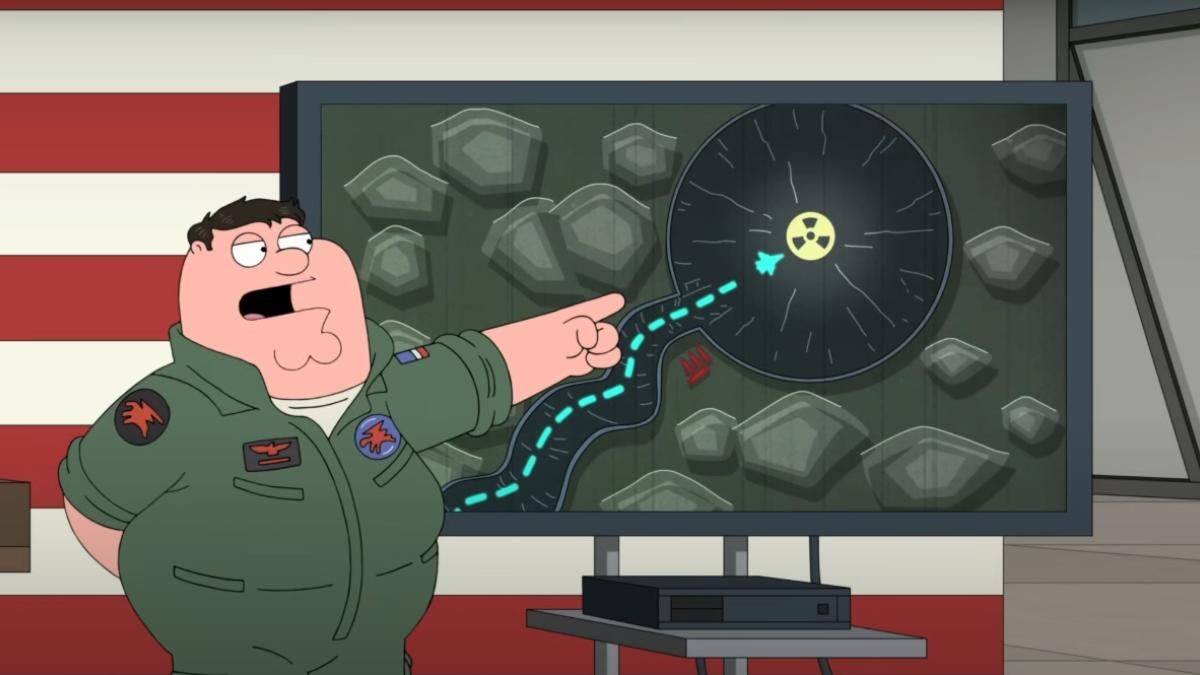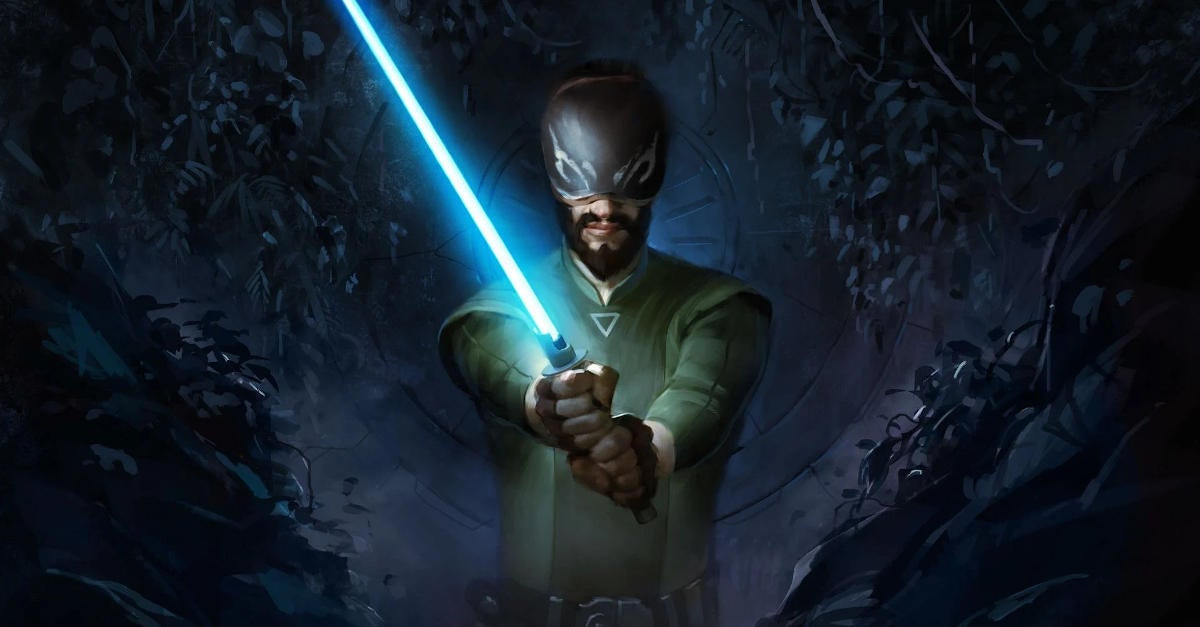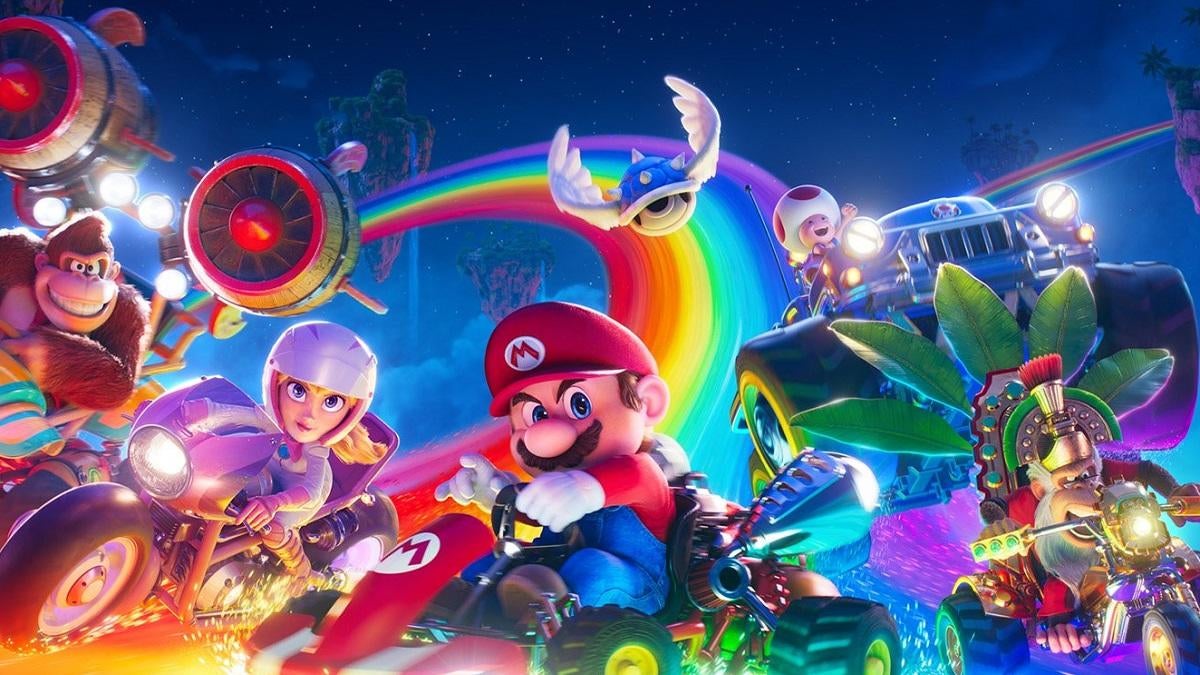America: The Motion Picture Review: An Absurd, Imperfect Experiment
In the first few minutes of America: The Motion Picture, George Washington — and by extension, [...]
In the first few minutes of America: The Motion Picture, George Washington — and by extension, the audience — learn a pivotal fact: that Benedict Arnold is a bloodthirsty werewolf. Believe it or not, this information is barely among the top ridiculous twists and turns revealed in the new Netflix film, which sets out to tell an alternate version of the early days of American history in an irreverent, 2D animation format. That concept, the voice cast, and the creative team — including director Matt Thompson (Archer, Sealab 2021) and producers Phil Lord and Christopher Miller (Spider-Man: Into the Spider-Verse, The Mitchells vs. the Machines) — all hypothetically feel like a home run, but they all combine to make something else entirely. America: The Motion Picture is a chaotic, outrageous spectacle in every sense of the phrase, one whose ensemble cast helps it buoy above being forgettable.
America: The Motion Picture centers around a ragtag group of revolutionaries — led by George Washington (Channing Tatum), who has been motivated to make the democracy of America a reality following a tragic event. George joins up with hard-partying beer lover Samuel Adams (Jason Mantzoukas), ostracized female scientist Thomas Edison (Olivia Munn), awkward horseriding enthusiast Paul Revere (Bobby Moynihan), and pragmatic Native American tracker Geronimo (Raoul Trujillo) to steal a key piece of information from a lycan-themed Benedict Arnold (Andy Samberg), who is working at the behest of King James (Simon Pegg).
That bare-bones synopsis doesn't quite do justice to the absolute absurdity that America: The Motion Picture brings, and it would take thousands of words to chronicle everything under that umbrella. This includes (though certainly isn't limited to) Washington sporting a set of Wolverine-style retractable chainsaw claws, Big Ben turning into a giant mech, and a horse getting made over into a RoboCop-like creature. There are moments where that outrageousness is fun to dwell in, with fight sequences that are impressively choreographed, and individual jokes and set pieces that pay off in spades, including some charming visual gags or portmanteaus of existing pop culture. Yet as America: The Motion Picture wears on, its sense of humor veers dangerously close to feeling repetitive — multiple exchanges basically spin out into a dry Archer-style exchange of one character correcting the other about an incorrect statement or offensive phrase multiple times over, or one character mentioning an anachronistic thing that another character doesn't recognize. While these joke formats can have good implementations, they get a little stale when repeated ad nauseam over a 90-minute run time, and it occasionally sucks the wind out of some of the genuinely creative or zany sequences.
This pacing also has a unique effect on America: The Motion Picture's overall tone, and what message it wants to send about the very nature of the American experiment. Segments of the film set out to spin George and his friends' crusade as a wholly noble, exciting effort — and honestly, some of the film's most satisfying sequences are the ones that take a step back and marvel at the truly bizarre melting pot that is American culture. At the same time, there are some problematic aspects of the era of the revolution that need to be addressed, yet America: The Motion Picture doesn't seem completely confident in how to deal with them. Jokes about racism (and to a lesser extent, misogyny) are sprinkled throughout the film, though they are often breezed through to get to the next punchline, only for those prejudiced views to be either miraculously atoned for in the third act or not even referenced at all. One sequence, in particular, takes that step further with a scene that is undoubtedly tongue-in-cheek but doesn't leave the best taste in the mouth of viewers. While the fact that America: The Motion Picture occasionally acknowledges these elements is admirable, it begins to feel slightly half-hearted when the discussion about them devolves into the narrative equivalent of a shrug emoji. An argument could almost be made for using revisionist history to either create a meaningful social commentary or an unabashed bout of escapism, but the film doesn't always succeed when trying to do both.
One of the strongest aspects of America: The Motion Picture is its ensemble cast, which — once all of the major players are introduced — satisfyingly chew the scenery through their voice acting. Tatum brings the aloof charm that made his and Lord and Miller's collaboration on the Jump Street movies so delightful, with George Washington coming to life as a well-intentioned, often dumb "himbo." It's also a joy seeing Mantzoukas have such a prominent role, and his performance as Samuel Adams makes some of his pricklier lines much easier to swallow. Moynihan, Pegg, Samberg, Judy Greer as Martha Washington, and Will Forte as Abraham Lincoln all take their characters into the most absurd directions possible, yet in a way that helps sell some of the weirdest moments of the script. All of that is somewhat balanced by the honest voice performances from Trujillo and Killer Mike, the latter of whom plays a scene-stealing John Henry-esque blacksmith. Perhaps the biggest standout of the ensemble is Munn's gender-bent and race-bent Thomas Edison, a concept that she helps execute to a compelling and entertaining end, to the point where I could have watched an entire film just about her exploits.
On a technical level, America: The Motion Picture makes some fun creative decisions, with the aforementioned visual gags being brought to life in charming detail. The 2D style allows for an interesting shift in context and is still compelling to look at whether the action it is displaying is the film's version of an Avengers: Endgame battle, or just two characters standing and talking about novelty t-shirts. It isn't quite as transporting or technologically revolutionary as Spider-Verse or The Mitchells vs. the Machines, but given how much of the mainstream animated film industry still resorts to inoffensive, crowd-pleasing 3D animation, it still feels admirable.
In terms of patriotic-themed releases on a Fourth of July weekend, if last year's filmed performance of Hamilton was a glass of lemonade on a warm day, America: The Motion Picture is like chugging a Red Bull while on the verge of dehydration. The film is undeniably fun in concept and (mostly) in execution, and its ensemble cast and crew are a combination of people I would watch in any context, but the end result veers close to being a smidge too jumbled and uneasy, without being confident enough to fall into complete chaos. To an extent, America: The Motion Picture could have probably used even more of that chaos, though it still proves to be an entertaining bout of star-studded fun nonetheless.
Rating: 3 out of 5
America: The Motion Picture is now available to stream exclusively on Netflix.




